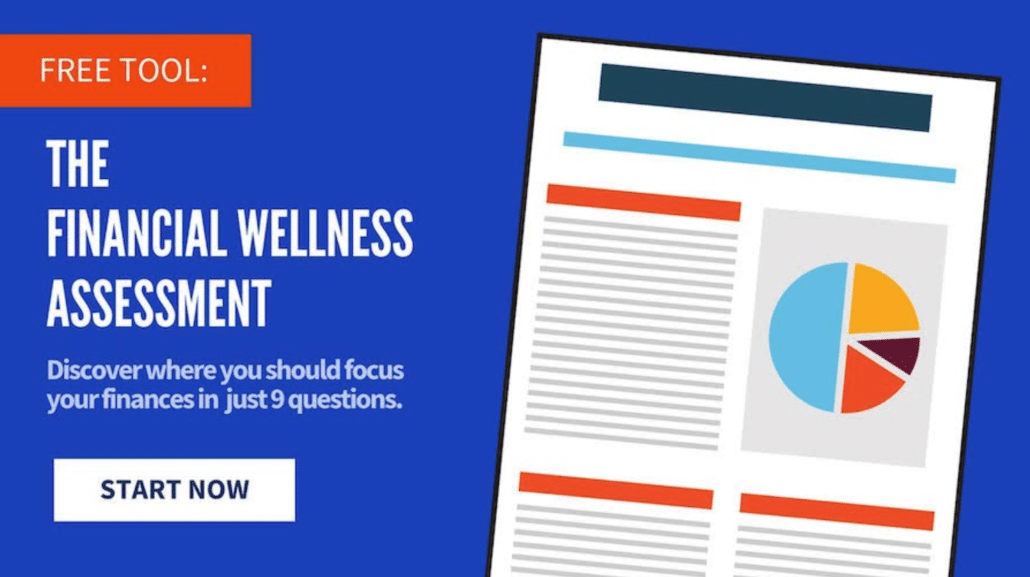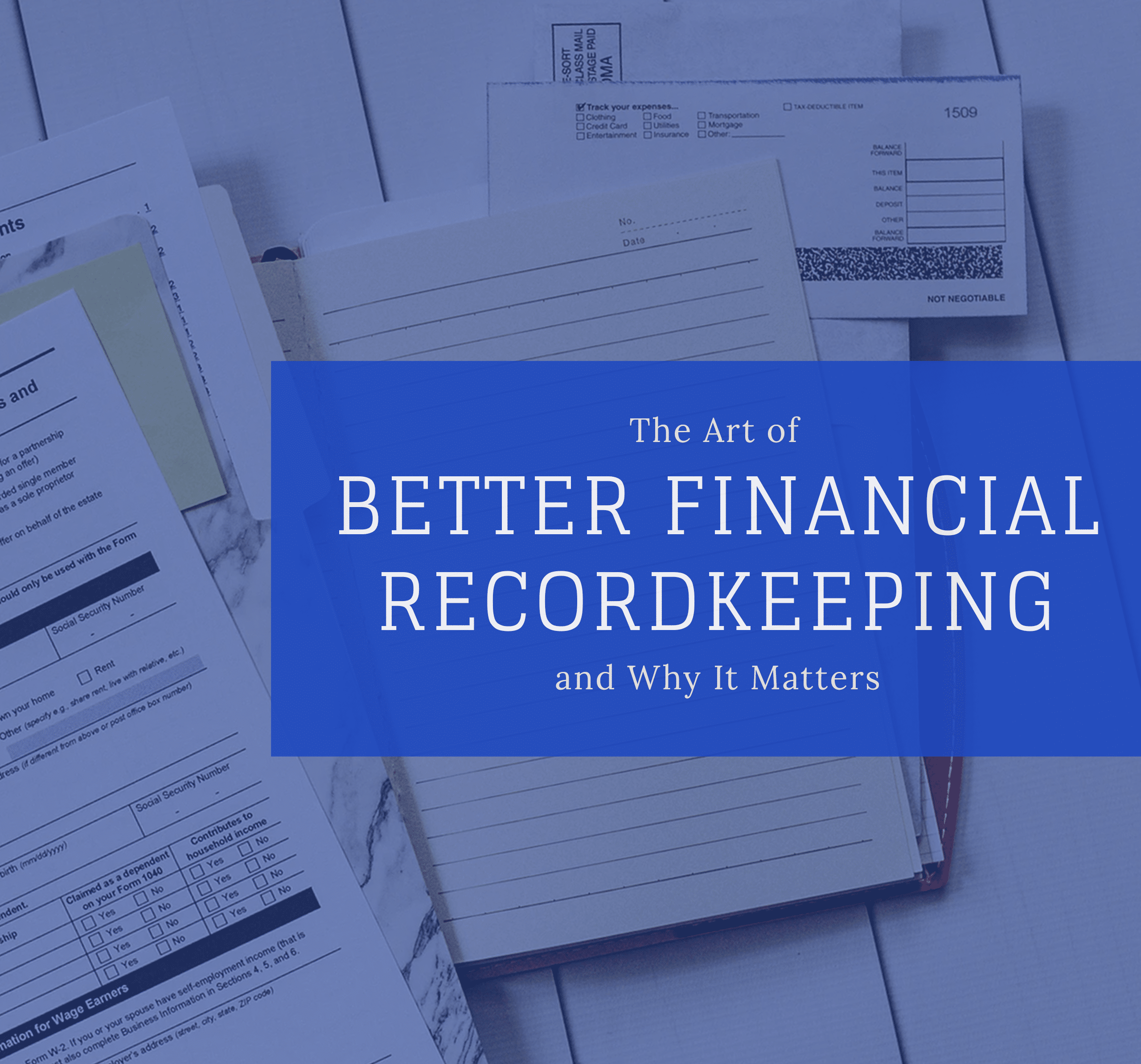While much of America sorts through and compiles what they need for a successful return this tax season, only a few taxpayers will think the process feels simple and relatively easy. How can you join their ranks?
There’s one practice guaranteed to make the tax filing process a lot less stressful each spring: organization.
Keeping documents orderly and well-secured has long been an important part of financial management, and it’s worth investing the time to get your financial life in order if it’s far from it right now.
Staying organized with better recordkeeping can also help if you have to do a little more than simply file your taxes.
In the event of an audit, for example, it ensures you have key documents on-hand that might otherwise take time (or be impossible) to obtain.
When there are hard deadlines to contend with—and the potential for expensive penalties—you don’t want to be in a crunch to locate the paperwork you need.
If you know you have receipts somewhere but couldn’t pull immediately if requested, or you’re not sure what you would do if required to provide proof of expenses behind the deductions you claimed, you need to learn the art of better recordkeeping.
Not All Files Need to Be Kept Forever
Recordkeeping can feel overwhelming because there’s simply so much to track. It can seem like there’s an endless amount of documentation you need to not only keep, but keep organized.
A simple rules-based system can help. As you go through your documents, use the list below to determine which items to keep and for how long:
Keep for one year (or less):
- Credit union and bank statements
- Homeowner and auto insurance policies
- Utility and credit card bills
Keep for at least one year:
- Receipts of significant purchases or home improvements
- Appraisals on property
- Mortgage contracts
Keep for three to seven years:
- W-2s, 1099s, K-1s, or any other forms verifying the information stated on your tax return
- Bank and brokerage statements
- Retirement account statements
- Records of tuition payments
- Charitable donation receipts
Never throw away:
- Social Security card
- Citizenship and military discharge papers
- Birth, death and marriage certificates
- Adoption records
- Legal filings or records of inheritances
Have something that doesn’t quite fit into the lists above? Another good rule of thumb is keeping files on-hand that would otherwise be difficult to obtain (think proof of identity, insurance claims and legal contracts).
You can also check with the IRS guidance for what to keep and how long if you have any questions about whether to keep or toss a specific document.
Maintain Physical Documents When You Can
Digital storage and cloud technologies have reduced the need for hard copies. But many documents of the kind listed above (particularly those falling into the “never throw away” category), are important to keep in physical form because you may be asked to provide originals.
To safeguard physical documents, consider secure storage in your home rather than a safe deposit box at your bank. While plenty secure, you’re ultimately at the mercy of the bank as to when you’ll have access to your box. Additionally, banks will typically seal the owner’s box in the case of death.
Waterproof and fireproof safes at home are an excellent alternative. They allow access at any time and are covered under your home’s insurance policy. Some can even be mounted to floors and walls to prevent theft in the event of a break-in.
If you do digitize your files for your own purposes and ease of use, have at least one hardcopy backup just in case you’re ever asked to produce an original.
If You Do Take Your Financial Recordkeeping Digital, Make It Secure
Digital files are an excellent way to reduce physical clutter around your home and office, but they also need to be properly protected.
Sensitive documents kept on personal or work computers should be stored in encrypted folders. This process involves the encoding of file folders so only those authorized will have access.
Both Mac and Windows offer file encryption. Third-party software like VeraCrypt is another alternative. It’s both free to use and compatible with Windows, Mac OS X and Linux. Like physical documents, it helps to organize and store digital files according to particular categories of health, banking, and the like so that you can easily reference the file you need.
A personal document locator is another excellent option for organizing where to actually find your digital data. This physical document serves as a comprehensive account of where you keep valuable information, which will be particularly helpful in assisting loved ones in the event of an emergency.
Expect to include personal information, what documents are where and points of contact (e.g., financial advisors, accountants or attorneys). You might also consider including online account information, such as usernames and passwords. To ensure the right people know about the document, it’s helpful to include a physical copy with your estate documents and even your estate attorney.
Dispose of Your Physical Documents Safely
Better recordkeeping isn’t just about what you keep. It’s about what you get rid of—and how.
Satisfying as it is to clear your home of outdated papers that aren’t useful anymore, there’s a proper way to get rid of financial or otherwise sensitive documents containing personal information. And it isn’t with weekly recycling.
The Consumer Sentinel Network received more than 3.2 million reported acts of suspected fraud in 2019, 20% of which involved identity theft. Anyone willing to dirty their hands a bit can get a hold of another’s personal information where it is simply tossed out. After all, there’s quite a bit of information to be found on old bills, statements and other documents.
Here’s a list of what identity thieves might find in the average household trash bag if you’re not careful about what you toss into your bins:
- Full names and signatures
- Home and office addresses
- Phone numbers
- Policy numbers
- Medical records
- Driver’s license numbers
- Usernames and passwords
- Routing and account numbers
- Membership information
Next to a secure space for storing hard-copy documents, shredding what isn’t necessary to keep is one of the best ways to safely dispose of files that contain personal or sensitive information. Most financial advisors have invested in a safe process for shredding and disposing of sensitive documents, so you can start by asking whether they can assist you in the process.
You can also utilize professional shredding services through office supply and shipping companies like FedEx and Staples. Secure shredding usually involves a fee, but it’s nominal in contrast to the benefit of protecting your personal information. Finally, check for free municipal shredding events in your area, which you can find through your city or town website.
Much of what it takes to implement better recordkeeping comes down to finding the appropriate balance between access and security. Organization in this area of your life can make the difference between contending with a major setback or a manageable one.
All too often, life crops up suddenly when you aren’t expecting it—and it’s in those moments that preparedness counts in a big way. Orderliness and good organization of your critical papers and documents is the first step to getting there.
…
RESOURCE: Do you want to make smart decisions with your money? Discover your biggest opportunities in just 9 questions with my Financial Wellness Assessment.
















I disagree about FICA. I threw my card away in high school, back in the 70’s. I have never needed it since. It’s just a tax ID for the feds. As long as you have an old tax return, 1099, W2, you are in good shape.
Once I got in the habit of tossing the same documents into tax folders by year, it gets easier. Credit card summaries, quicken reports, scanned stuff.
I no longer have any paper records of any kind. But I have a database that goes back to the 70’s on my income and spending.
Thanks for reading!
It sounds like you have a system in place that works really well for you.